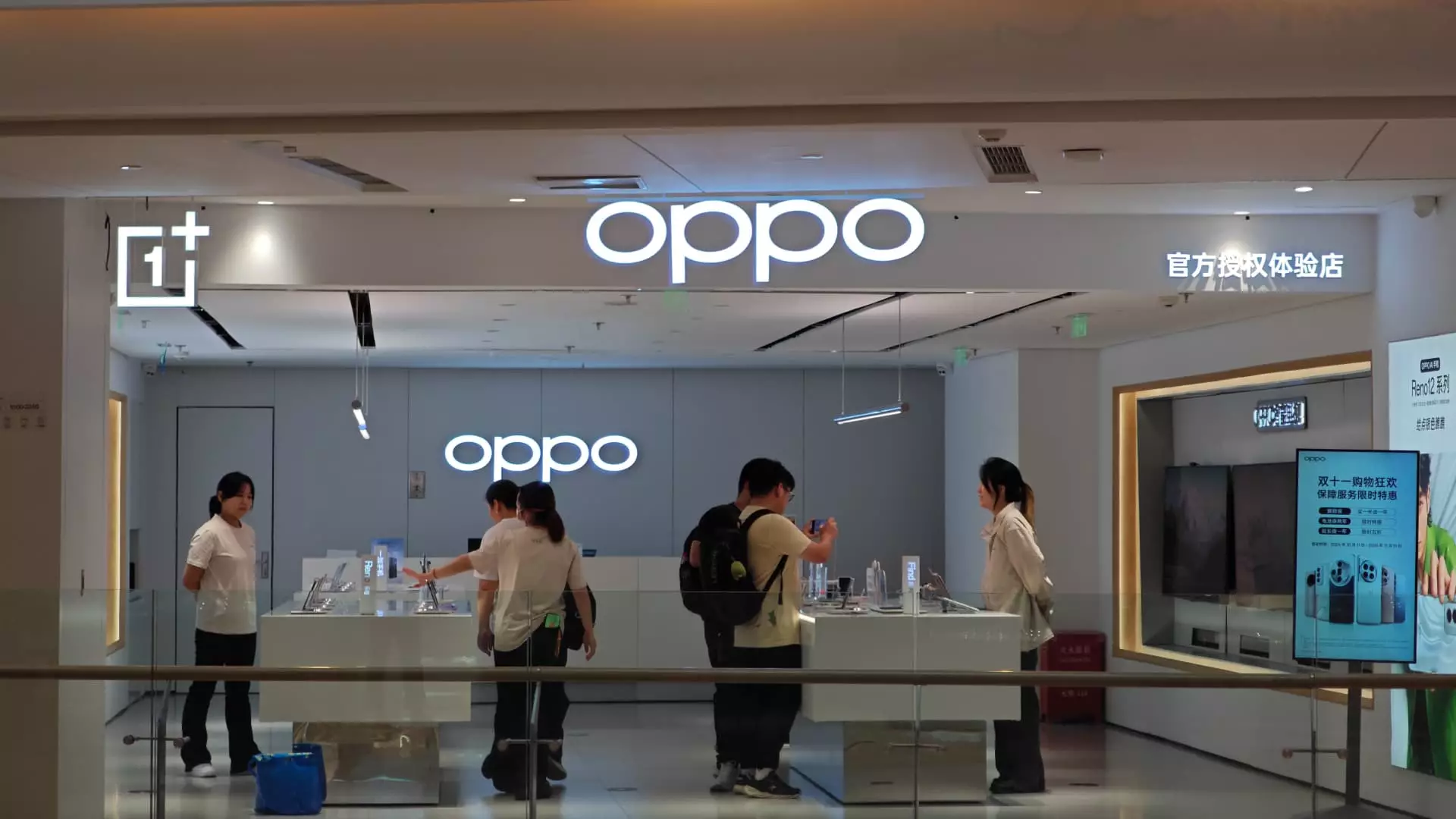In the rapidly evolving landscape of smartphone technology, artificial intelligence (AI) stands out as a transformative force. Chinese smartphone maker Oppo is explicitly aligning its strategic focus toward harnessing AI, particularly in collaboration with tech giants Google and Microsoft. This initiative comes in advance of the anticipated launch of its flagship smartphone in international markets. The urgency behind this push accentuates the competitive race to innovate and capitalize on generative AI—technologies that mimic human-like interactions when prompted.
Oppo’s modus operandi centers around addressing consumer pain points through AI-integrated products. In statements made by Billy Zhang, the company’s president of overseas market sales and services, he highlighted a proactive approach: “Google will also come to China to ask us what needs and pain points you have with your products. Let’s solve them together.” This collaborative spirit aims to not only enhance product features but also foster a deeper understanding of user needs.
The landscape is rife with competition, as established players like Apple and Samsung vie for market dominance. Notably, Oppo has positioned itself as a significant contender, ranking fourth worldwide in smartphone shipments, thereby commanding 9% of global sales according to recent Canalys data. The company’s market trajectory indicates its strength lies significantly outside the American sphere, as approximately 60% of its revenue originates from Southeast Asia and Europe. While immediate plans for the U.S. market are absent, Oppo’s rapid growth in Europe showcases its ambition.
Interestingly, despite restrictions that the U.S. has placed on exporting advanced chips to China, experts predict that Chinese companies like Oppo may possess an advantage in consumer-oriented AI applications. The forthcoming flagship phone from Oppo is expected to boast advanced AI writing, recording capabilities via Google’s Gemini platform, as well as Microsoft-enhanced features powered by OpenAI’s ChatGPT technologies.
Commitment to AI Development
The infusion of AI technology into Oppo’s product suite is not merely a gimmick; it represents a deep-seated philosophy toward innovation. Zhang remarked, “We are very optimistic about AI and have invested with great determination. AI is the most important area for tech in the future. All industries can be transformed by AI.” This commitment reflects a broader trend where companies are not just adopting AI but are investing heavily in developing proprietary AI solutions. Oppo’s establishment of an AI center in February 2023 and plans to integrate generative AI into 50 million devices illustrate this trajectory well.
Meanwhile, the capabilities of existing devices feature various AI enhancements, including functionality for photo editing and a ChatGPT-like conversational bot. Such advancements indicate that AI’s role within Oppo’s ecosystem is likely to extend far beyond mere app features, indicating a holistic approach to product development.
Manufacturing Innovation and Automation
Beyond product development, Oppo is also integrating AI into its manufacturing processes. By implementing more automated systems in their factories, particularly one located in Dongguan, Oppo has streamlined operations considerably, decreasing labor-intensive procedures. Approximately 8% of the workforce has transitioned from manual tasks to more specialized roles in the production of high-end models, underscoring a shift toward greater automation.
Danny Du, director of manufacturing management at Oppo, elaborated on this operational transformation, stating, “Since our manufacturing process is largely digitalized and standardized, growing and expanding to global markets is much easier.” This approach has yielded not only a reduction in production times—from 16 days down to a mere six—but also a substantial drop in manufacturing costs by almost 40% over three years.
Forecasts from Counterpoint Research suggest that generative AI in smartphones will witness a remarkable increase—growing from 46 million units last year to an anticipated 732 million by 2028. As the smartphone industry races to adapt to this paradigm shift, brands are beginning to incorporate more complex AI-driven functionalities.
China’s Honor has already revealed plans for an OS update that allows AI to simulate touchscreen actions, clearly demonstrating that the competition is heating up across the board. As Oppo and other players align their strategies toward AI, the outcomes could redefine user interactions, improve manufacturing processes, and ultimately reshape the smartphone market landscape altogether.
Oppo’s strategic initiatives, revolving around the integration of AI, signify more than just adaptation; they indicate a pioneering thrust toward innovation. As the company navigates its expansion plans and responds to market needs, its commitment to AI will likely play a crucial role in determining its success in the congested global smartphone market.

